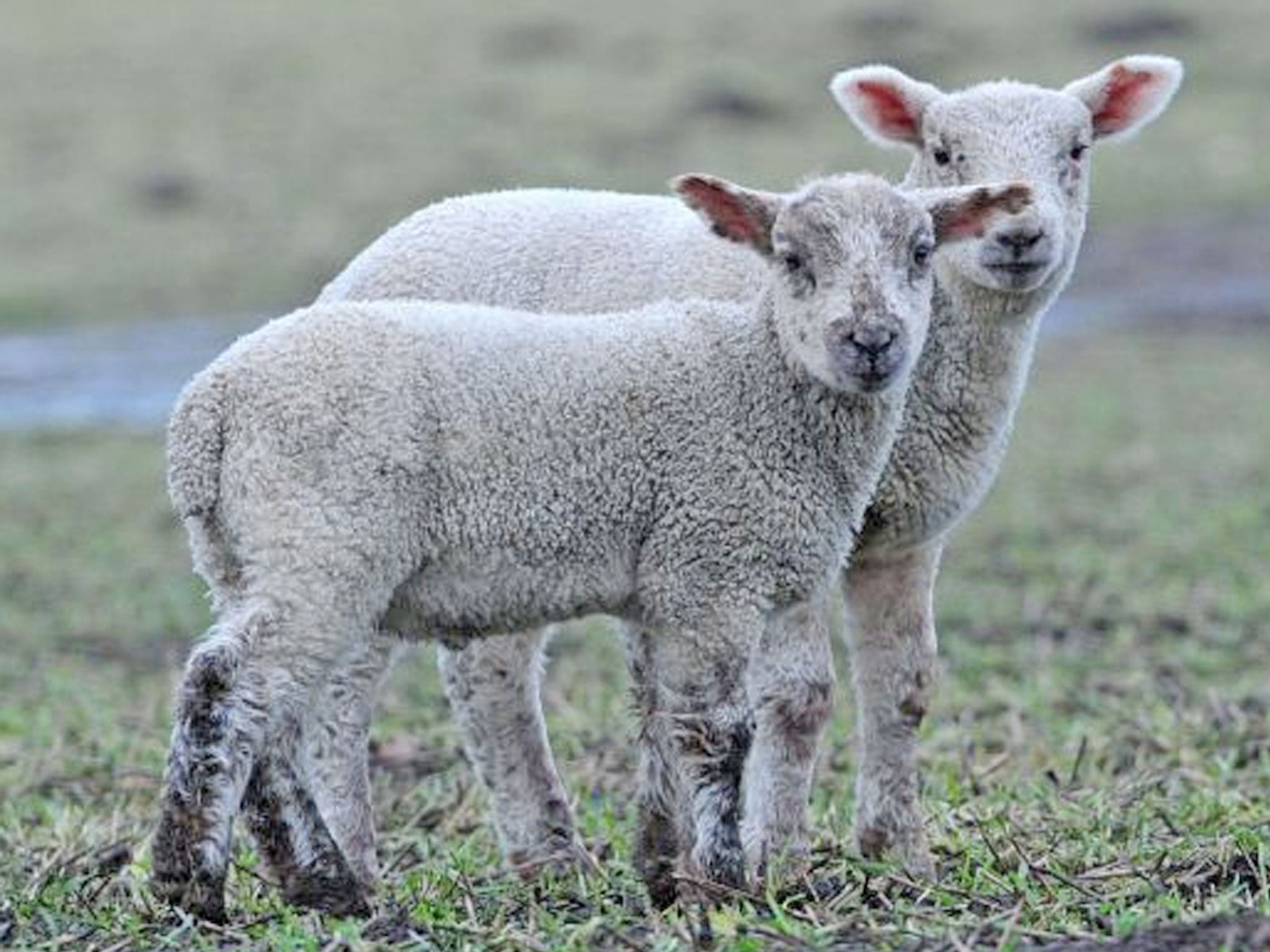Lambing season left blighted as deadly Schmallenberg virus
Farmers fear livestock crisis after thousands of animals killed by Schmallenberg disease

Tens of thousands of lambs have been stillborn or deformed throughout Britain as a result of the deadly Schmallenberg virus, with the industry bracing itself for what could be a blighted lambing season.
In infected flocks the rate of lamb loss has been between 25 and 30 per cent on average, according to the National Farmers Union livestock chief, who has lost 40 per cent of the lambs from his early breeding flock to the emerging virus. Schmallenberg has been reported on more than 1,200 farms across the country, but there are fears the disease is being under-reported and that the Government is not taking the threat seriously enough.
Although there are hopes that many later-lambing ewes, which make up the majority of the national flock, have escaped infection, farmers warn that losses on a similar rate throughout the lambing season would plunge the sheep-farming industry into “crisis”.
“Farmers need a good lambing season to avert a crisis,” Robin Milton, the NFU’s Uplands chairman who keeps 700 ewes on Exmoor, Devon, said. “It’s a fragile state of affairs. If there was even a five per cent loss, in some flocks, that’s the profit for the year gone.”
Sheep farmers are already struggling with falling lamb prices and the after effects of last year’s poor weather. Farmgate prices for lambs have dropped by a quarter and the wholesale price is down 17 per cent, but the price for lamb on the shelf has dipped only two per cent, leaving farmers to pick up the deficit.
Schmallenberg first appeared in eastern England more than a year ago, but is now believed to have spread to every county in England and Wales. The virus, which originated in Germany and is thought to have spread in infected insects blown across the Channel, causes abortions and birth defects in livestock. Cattle farmers also fear the virus could affect this year’s calves.
Uncertainty over the damage Schmallenberg might cause has led to calls for the Government to accelerate development of a vaccine, which is not predicted to be released on to the market until next year. Defra is still treating Schmallenberg as a low-priority, non-notifiable disease, meaning that farmers do not have to report cases of it, which has led to fears the Government may be underestimating its true extent.
Charles Sercombe, the NFU’s livestock chairman, who keeps 2,000 ewes near Melton Mowbray in Leicestershire, has lost 40 per cent of his early breeding pedigree Charollais flock to Schmallenberg – a financial loss of £12,000 to £15,000. “This is a very new disease,” he said. “We’re all learning about it as we go along. The uncertainty is making farmers apprehensive as we look towards the March and April lambing season. We’re all keeping our fingers crossed that the impact will be lower than in the earlier flocks.”
The virus is spread by midges, mosquitoes and ticks and although an infection to a ewe or a ram does not necessarily mean offspring will die, early losses have raised concerns that the disease’s impact could be greater than first feared.
The Government anticipates that later lambing flocks will be less vulnerable because later-breeding animals may have had time to develop natural immunity to the virus. “It would be useful if the Government did everything they could to make the vaccine available,” Mr Sercombe said. “Confidence in sheep farming is at rock bottom. The safest option is to give us the vaccine to protect our flocks.”
A Defra spokesman said: “It’s extremely distressing for any farmer whose flocks have been affected by Schmallenberg – particularly those who have seen a greater impact on their sheep and cows.”
Schmallenberg: how the disease spreads
Schmallenberg virus is an emerging livestock virus that originated in Germany and has been detected in Belgium, the Netherlands and now the UK.
It is transmitted by vectors such as midges, mosquitoes and ticks. It is believed the disease arrived in the UK carried by midges blown across the Channel.
The virus can cause late abortion or birth defects in newborn sheep, cattle and goats as well as diseases such as milk drop, pyrexia and diarrhoea in adult cattle. It is not a notifiable disease, meaning that farmers do not have to report it, but they are advised to contact a vet if they encounter symptoms in their livestock.
There is a low likelihood of any risk to public health.
Subscribe to Independent Premium to bookmark this article
Want to bookmark your favourite articles and stories to read or reference later? Start your Independent Premium subscription today.

Join our commenting forum
Join thought-provoking conversations, follow other Independent readers and see their replies